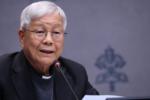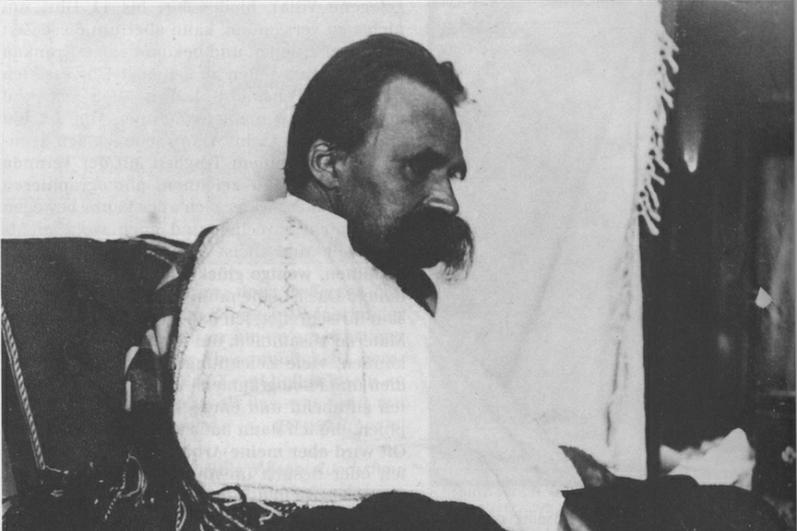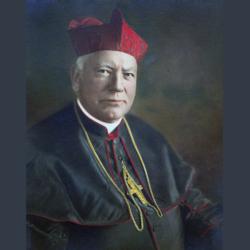Nietzsche, 'The Power of the Dog,' and Psalm 22
"The Power of the Dog" is one of the most talked-about and decorated films of the past year, garnering twelve Oscar nominations, including best picture, best actor, best supporting actor, best supporting actress, and best director. It is indeed a fine film to look at, the acting is uniformly marvelous, and the story is brooding and tautly rendered. At the same time, it's a movie that leaves the viewer (or at least this particular viewer) a bit confused, and more than a little uneasy. Many have in fact debated what exactly was going on as the picture came to its conclusion. "The Power of the Dog" is a meditation on family, friendship, repressed sexuality, and, above all, the way that powerful people come to manipulate and abuse one another. It is precisely the manner in which Jane Campion, the crafty director, presents this last theme that I would like to analyze.
The film is set in Montana in the early part of the last century, and its focus is initially on two brothers, Phil and George Burbank, who are wealthy ranch owners. While on a cattle drive, they meet Rose, the proprietor of a boarding house. The kindly George is smitten, and he and Rose marry. She moves into the brothers' rambling house, along with her son from a previous marriage, an exaggeratedly effeminate young man named Peter. Though we learn that he had studied classics at Yale, Phil is now a hardened cowboy, an earthy, grim man, deeply suspicious of others, and he positively detests both Rose and Peter. Seeing his brother's wife as an opportunist, he mercilessly belittles her, causing her to resort, increasingly, to alcohol. And the delicate boy becomes the object of his ferocious verbal assaults and mockery.
But Peter is no shrinking violet, and we soon learn that, despite his weak appearance, he has impressive reserves of intelligence and cunning. Sensing correctly that the ostensibly macho Phil in fact is suppressing powerful homosexual desires, the young man commences first to seduce, then to manipulate, and finally to destroy the one antagonizing both him and his mother. At the close of the film, we see Peter reading the Psalm verse that provides the movie's title: "Deliver my soul from the sword, my darling from the power of the dog." Many of the interpreters of the film appreciate it as an expose of "toxic masculinity" and exult in the way in which a nontraditional form of masculinity manages to trump it. A conventional type of power is bested by an unexpected and underestimated type of power.
But if that is the message of the film, I'm tempted to quote the Who's "Won't Get Fooled Again": "Meet the new boss; same as the old boss." Under the baleful influence of Nietzsche and especially Michel Foucault, our postmodern culture is obsessed with power and its exercise. We investigate, over and again, who has power, who is victimized by it, and how the tables can be turned. It is no accident that the revenge fantasy (think all of Quentin Tarantino's movies) is such a popular genre today. But if "toxic" masculinity is undone by a masculinity that is different but just as toxic, how have we made any progress? If the blunt, gruff, straightforward violence of Phil is undermined by the subtle, insinuating violence of Peter, how are we any better? We might feel a certain rush of satisfaction at the ending of "The Power of the Dog," since our sympathies are naturally drawn to the put-upon young man, but if he proves to be just as heartless as his persecutor, then so what?
The reason that Nietzsche and, after him, Foucault put such a stress on the plays of power is that they both denied the objectivity of moral value. If there is no real good or evil, then all that finally matters is, as Nietzsche put it, the "will to power." But this is dangerous nonsense. The classical tradition appreciated power as the capacity to effect change and hence as something, in itself, morally neutral. What mattered far more to authors from Aristotle to Aquinas is the virtue with which power is wielded and the moral purpose which it serves. I imagine that if Thomas Aquinas were assessing the characters in "The Power of the Dog," he would critique, not so much Phil's power, as his cruelty. And therefore, he would certainly not exult in Peter's exercise of power in service of an answering cruelty.
And this brings me back to the enigmatic title of the film. The line, drawn from Psalm 22, does indeed beseech the all-powerful Lord to deliver the Psalmist from the wickedness of an oppressor. But how wonderful that this very Psalm was on the lips of Jesus as he was dying on the cross. The deliverance of the Lord would come, not through the violent exercise of power, but through tapping into the forgiving love of God. At the end of the day, it is not the possession of power that matters, but rather the love with which that power is wielded.
- Bishop Robert Barron is the founder of the global ministry, Word on Fire, and is an Auxiliary Bishop in the Archdiocese of Los Angeles.



















